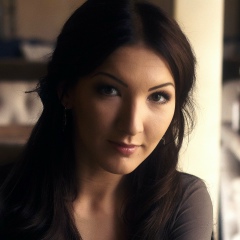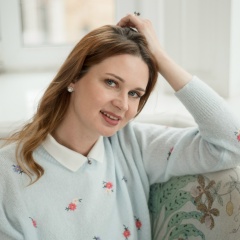про взрослых детей
Вырасти — трудно. Стать взрослым — ещё труднее.
Есть в психологии такое понятие: сепарация. Это означает отделение от родителей, то есть по сути — взросление.
Сепарация — это процесс, и идёт он по спирали. То есть на каждом этапе нашей жизни мы снова и снова решаем проблему сепарации, всё сильнее и сильнее отделяясь от родителей. Постепенно вырисовывается наша собственная личность. Так мы становимся взрослыми и самостоятельными.
Сначала мы отделяемся от родителя физически — то есть рождаемся. Потом учимся самостоятельно передвигаться, убегать от мамы в сторону тех вещей, которые интересны НАМ. Через какое-то время начинается постепенное отделение от семьи — мы включаемся в игры на детской площадке, идём в садик и школу. А в подростковом возрасте мы начинаем отделяться от маминых и папиных авторитетов — бунтуем, пробуем по-своему, спорим, ищем другие примеры для подражания, грубим и не слушаемся. Затем мы отделяемся ещё сильнее — ищем своё дело, выбираем профессию. А потом создаём собственную семью. Родители становятся нам почти ровней, то есть такими же взрослыми, как и мы сами. Но мы не обязаны ни слушаться, ни протестовать. Так мы обретаем равновесие и зрелость.
Дети отделяются физически. Подростки — эмоционально. Взрослые — профессионально. То есть в процессе развития мы отделяем сначала своё тело, затем чувства, а потом и мозги.
Правда, на каждом из этих этапов запросто можно «застрять».
Например, дожить до 30-40-50 лет, но так и не отделиться физически. То есть жить с родителями, то есть не иметь своей территории. А можно не обрезать «пуповину» в виде телефонной трубки.
Ещё чаще встречаются случаи, когда взрослый ребёнок не отделился эмоционально. В таком случае влияние родителей (чаще — мамы) не так бросается в глаза, но на самом деле оно прямо или косвенно управляет так называемым «взрослым». Например, детский страх обидеть маму, быть «плохим ребёнком» вынуждает казалось бы зрелого человека постоянно уступать. Вот хочет мама провести со своей дочкой праздники, а у дочки есть свои интересы, свои друзья, а то и семья. Но выбирает она — маму. Или ещё вариант: есть у ребёнка своя квартира, живёт отдельно, но к маме — по первому зову, ведь ей помочь надо, а свои дела я отложу, потом сделаю. То есть между «быть собой» и «быть правильным ребёнком» человек выбирает второе.
А бывает, что мамины ценности управляют жизнью взрослого ребёнка. Например, установка «на мужиков надеяться нельзя, надо всё делать самой» - запросто может рулить психикой взрослой женщины, даже если её собственный опыт доказывает обратное. В таком случае из всех событий, с этой темой связанных, она будет придавать значение только тем, которые мамин способ жить подтверждают.
Не отделиться профессионально тоже можно. Делается это примерно так: выбирается профессия, на которой настаивали родители. Или которая ими одобрялась. А дальше работаем на нелюбимой работе. Ещё вариант - доказываем маме, что «меня есть за что уважать», «я-таки стану лучшим» (как она всегда требовала), работая до изнеможения. Забывая о других сферах жизни, а главное — о своих собственных потребностях. Вроде человек взрослый, но не отдельный: призрак родительских «ты не достаточно хорош» подгоняет, подстёгивает, не даёт расслабиться.
Собственно, незрелость — не всегда однозначно плохо. Но при таком положении вещей не получится быть собой. И периодически будет возникать смутное чувство, будто живёшь не свою жизнь.
[id32764|Екатерина Амеялли], психолог центра «Отношения.ру»
Вырасти — трудно. Стать взрослым — ещё труднее.
Есть в психологии такое понятие: сепарация. Это означает отделение от родителей, то есть по сути — взросление.
Сепарация — это процесс, и идёт он по спирали. То есть на каждом этапе нашей жизни мы снова и снова решаем проблему сепарации, всё сильнее и сильнее отделяясь от родителей. Постепенно вырисовывается наша собственная личность. Так мы становимся взрослыми и самостоятельными.
Сначала мы отделяемся от родителя физически — то есть рождаемся. Потом учимся самостоятельно передвигаться, убегать от мамы в сторону тех вещей, которые интересны НАМ. Через какое-то время начинается постепенное отделение от семьи — мы включаемся в игры на детской площадке, идём в садик и школу. А в подростковом возрасте мы начинаем отделяться от маминых и папиных авторитетов — бунтуем, пробуем по-своему, спорим, ищем другие примеры для подражания, грубим и не слушаемся. Затем мы отделяемся ещё сильнее — ищем своё дело, выбираем профессию. А потом создаём собственную семью. Родители становятся нам почти ровней, то есть такими же взрослыми, как и мы сами. Но мы не обязаны ни слушаться, ни протестовать. Так мы обретаем равновесие и зрелость.
Дети отделяются физически. Подростки — эмоционально. Взрослые — профессионально. То есть в процессе развития мы отделяем сначала своё тело, затем чувства, а потом и мозги.
Правда, на каждом из этих этапов запросто можно «застрять».
Например, дожить до 30-40-50 лет, но так и не отделиться физически. То есть жить с родителями, то есть не иметь своей территории. А можно не обрезать «пуповину» в виде телефонной трубки.
Ещё чаще встречаются случаи, когда взрослый ребёнок не отделился эмоционально. В таком случае влияние родителей (чаще — мамы) не так бросается в глаза, но на самом деле оно прямо или косвенно управляет так называемым «взрослым». Например, детский страх обидеть маму, быть «плохим ребёнком» вынуждает казалось бы зрелого человека постоянно уступать. Вот хочет мама провести со своей дочкой праздники, а у дочки есть свои интересы, свои друзья, а то и семья. Но выбирает она — маму. Или ещё вариант: есть у ребёнка своя квартира, живёт отдельно, но к маме — по первому зову, ведь ей помочь надо, а свои дела я отложу, потом сделаю. То есть между «быть собой» и «быть правильным ребёнком» человек выбирает второе.
А бывает, что мамины ценности управляют жизнью взрослого ребёнка. Например, установка «на мужиков надеяться нельзя, надо всё делать самой» - запросто может рулить психикой взрослой женщины, даже если её собственный опыт доказывает обратное. В таком случае из всех событий, с этой темой связанных, она будет придавать значение только тем, которые мамин способ жить подтверждают.
Не отделиться профессионально тоже можно. Делается это примерно так: выбирается профессия, на которой настаивали родители. Или которая ими одобрялась. А дальше работаем на нелюбимой работе. Ещё вариант - доказываем маме, что «меня есть за что уважать», «я-таки стану лучшим» (как она всегда требовала), работая до изнеможения. Забывая о других сферах жизни, а главное — о своих собственных потребностях. Вроде человек взрослый, но не отдельный: призрак родительских «ты не достаточно хорош» подгоняет, подстёгивает, не даёт расслабиться.
Собственно, незрелость — не всегда однозначно плохо. Но при таком положении вещей не получится быть собой. И периодически будет возникать смутное чувство, будто живёшь не свою жизнь.
[id32764|Екатерина Амеялли], психолог центра «Отношения.ру»
about adult children
Growing up is hard. Becoming an adult is even more difficult.
There is such a concept in psychology: separation. This means separation from parents, that is, in essence - growing up.
Separation is a process, and it goes in a spiral. That is, at every stage of our lives, we again and again solve the problem of separation, becoming more and more separated from our parents. Gradually, our own personality looms. So we become adults and independent.
First, we physically separate from the parent — that is, we are born. Then we learn to move independently, to run away from mom in the direction of those things that are of interest to us. After some time, a gradual separation from the family begins - we join the games on the playground, go to kindergarten and school. And in adolescence, we begin to separate from mother's and father's authorities - we rebel, try our own way, argue, look for other role models, are rude and do not obey. Then we separate even more - we look for our business, we choose a profession. And then we create our own family. Parents become almost equal to us, that is, as adults as we are. But we are not obliged to either obey or protest. So we gain balance and maturity.
Children are separated physically. Teenagers are emotionally involved. Adults - professionally. That is, in the process of development, we first separate our body, then our feelings, and then our brains.
True, at each of these stages you can easily get stuck.
For example, to live to 30-40-50 years, but never physically separate. That is, to live with parents, that is, not to have their own territory. And you can not cut the “umbilical cord” in the form of a handset.
Even more common are cases when an adult child is not emotionally separated. In this case, the influence of parents (more often mothers) is not so striking, but in fact it directly or indirectly controls the so-called "adult". For example, children's fear of offending a mother, being a “bad child” forces a seemingly mature person to constantly give in. Mom wants to spend the holidays with her daughter, and the daughter has her own interests, her friends, and even the family. But she chooses - mom. Or another option: the child has his own apartment, lives separately, but to his mother - at the first call, because she needs help, and I will postpone my affairs, then I will do it. That is, between "to be yourself" and "to be the right child," a person chooses the second.
And it happens that mother's values govern the life of an adult child. For example, the installation “you can’t hope for men, you have to do everything yourself” - it can easily steer the psyche of an adult woman, even if her own experience proves the opposite. In this case, of all the events associated with this topic, she will attach importance only to those that Mom’s way of living confirms.
Not to be separated professionally is also possible. This is done approximately like this: a profession is chosen, on which parents insisted. Or which was approved by them. And then we work on an unloved job. Another option - we prove to mom that “I have something to respect”, “I will become the best” (as she always demanded), working to the point of exhaustion. Forgetting about other areas of life, and most importantly - about their own needs. He seems to be an adult, but not separate: the ghost of the parent “you're not good enough” urges, urges, does not allow you to relax.
In fact, immaturity is not always uniquely bad. But in this state of affairs, it will not work to be yourself. And from time to time there will be a vague feeling that you are not living your life.
[id32764 | Ekaterina Ameyalli], psychologist at the Center "Relations.ru"
Growing up is hard. Becoming an adult is even more difficult.
There is such a concept in psychology: separation. This means separation from parents, that is, in essence - growing up.
Separation is a process, and it goes in a spiral. That is, at every stage of our lives, we again and again solve the problem of separation, becoming more and more separated from our parents. Gradually, our own personality looms. So we become adults and independent.
First, we physically separate from the parent — that is, we are born. Then we learn to move independently, to run away from mom in the direction of those things that are of interest to us. After some time, a gradual separation from the family begins - we join the games on the playground, go to kindergarten and school. And in adolescence, we begin to separate from mother's and father's authorities - we rebel, try our own way, argue, look for other role models, are rude and do not obey. Then we separate even more - we look for our business, we choose a profession. And then we create our own family. Parents become almost equal to us, that is, as adults as we are. But we are not obliged to either obey or protest. So we gain balance and maturity.
Children are separated physically. Teenagers are emotionally involved. Adults - professionally. That is, in the process of development, we first separate our body, then our feelings, and then our brains.
True, at each of these stages you can easily get stuck.
For example, to live to 30-40-50 years, but never physically separate. That is, to live with parents, that is, not to have their own territory. And you can not cut the “umbilical cord” in the form of a handset.
Even more common are cases when an adult child is not emotionally separated. In this case, the influence of parents (more often mothers) is not so striking, but in fact it directly or indirectly controls the so-called "adult". For example, children's fear of offending a mother, being a “bad child” forces a seemingly mature person to constantly give in. Mom wants to spend the holidays with her daughter, and the daughter has her own interests, her friends, and even the family. But she chooses - mom. Or another option: the child has his own apartment, lives separately, but to his mother - at the first call, because she needs help, and I will postpone my affairs, then I will do it. That is, between "to be yourself" and "to be the right child," a person chooses the second.
And it happens that mother's values govern the life of an adult child. For example, the installation “you can’t hope for men, you have to do everything yourself” - it can easily steer the psyche of an adult woman, even if her own experience proves the opposite. In this case, of all the events associated with this topic, she will attach importance only to those that Mom’s way of living confirms.
Not to be separated professionally is also possible. This is done approximately like this: a profession is chosen, on which parents insisted. Or which was approved by them. And then we work on an unloved job. Another option - we prove to mom that “I have something to respect”, “I will become the best” (as she always demanded), working to the point of exhaustion. Forgetting about other areas of life, and most importantly - about their own needs. He seems to be an adult, but not separate: the ghost of the parent “you're not good enough” urges, urges, does not allow you to relax.
In fact, immaturity is not always uniquely bad. But in this state of affairs, it will not work to be yourself. And from time to time there will be a vague feeling that you are not living your life.
[id32764 | Ekaterina Ameyalli], psychologist at the Center "Relations.ru"

У записи 28 лайков,
5 репостов.
5 репостов.
Эту запись оставил(а) на своей стене Екатерина Оксанен













































